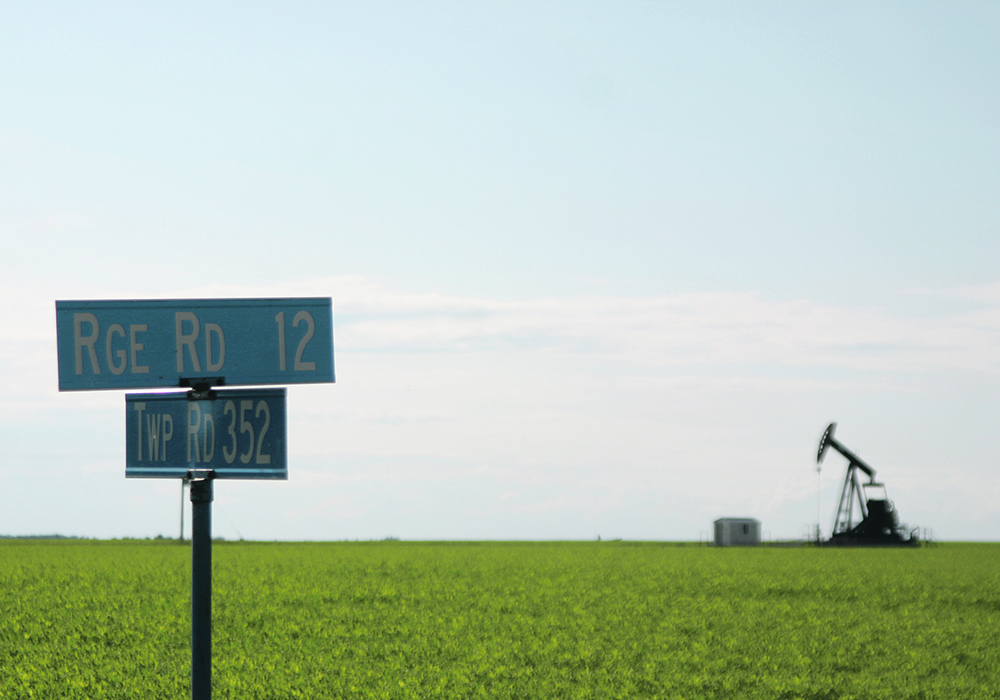The amount of unpaid property taxes owed to rural municipalities by energy companies increased by 6.1 percent last year
Alberta’s rural municipalities are collectively owed about $268.5 million in property taxes by oil and gas companies, even as the provincial government expects to enjoy a $2.4 billion surplus due to a surging energy industry.
Most of the companies that aren’t paying their taxes to municipalities are likely also withholding surface lease payments to farmers for oil and gas wells, said Paul McLauchlin, president of Rural Municipalities of Alberta.
He pointed to elderly neighbours near his property in Ponoka County who have an oil facility on their farm.
Read Also

Using artificial intelligence in agriculture starts with the right data
Good data is critical as the agriculture sector increasingly adopts new AI technology to drive efficiency, sustainability and trust across all levels of the value chain.
“And they haven’t been paid for years.”
The RMA fears the provincial government has been turning a blind eye to what are in effect interest-free loans to “prop up companies that are effectively zombies that obviously have liabilities that exceed their assets,” said McLauchlin. “And they’re just using taxes as a way to offset their expenses, and enough is enough for us.”
The situation threatens to upend one of Alberta’s selling points about its oil being ethically produced, said McLauchlin.
“You’re going to go around talking about ethical oil… show it by your actions.”
The provincial government agreed that “unpaid oil and gas taxes to rural municipalities (are) unacceptable,” said a statement by Minister of Municipal Affairs Rebecca Schulz. “We are consulting with industry, municipalities, and landowners as we actively explore options to ensure taxes… are paid as a condition of licence transfer.”
The provincial budget, which was released Feb. 28, expected the government could enjoy a surplus of as much as $2.4 billion by March 2024 because of the oil and gas industry. Rural municipalities agreed to several tax breaks in 2020 to help the then-ailing industry, including a three-year tax holiday for new wells for the 2022 to 2024 tax years.
The increasing breakdown in the partnership between the industry and rural municipalities is troubling, said McLauchlin.
“The stark reality is we probably have five to eight years of peak oil production in the province of Alberta, and then we’re going to see a decline.”
A survey of RMA members released March 7 found they were collectively owed about $268.5 million in unpaid property taxes from oil and gas companies as of Dec. 31, 2022, up 6.1 percent from about $253 million in 2021.
Although it was the largest such increase in a single year, it was 231.5 percent higher compared to 2018 when about $81 million was owed. Rural municipalities now face an average shortfall of nearly $4 million, said a statement by the RMA.
McLauchlin estimated about eight municipalities in eastern Alberta “are actually in serious financial distress because of the ongoing unpaid taxes. Our reality as it stands right now is if this continues on the trajectory and the growth that it is right now, this would be a serious existential crisis for rural municipal leaders.”
He did not discount the possibility of the provincial government eventually having to step in to take over municipalities if nothing changes. He pointed to the Special Areas near the Saskatchewan border, which were formed during the Great Depression of the 1930s.
Schulz said the RMA’s survey of unpaid property taxes is broadly consistent with the provincial government’s own research.
“While the problem of unpaid oil and gas taxes persists for many Alberta municipalities, we have recently seen payment plans established from 25 companies for municipalities to receive approximately $48 million in owed taxes,” she said.
“Our government will provide support as needed to municipalities as they create payment plans to recover unpaid taxes where possible. The vast majority of companies in Alberta’s energy sector pay their local taxes but some have not, leaving municipalities with hard decisions about raising taxes for other taxpayers or cutting services.”
McLauchlin said rural residents such as farmers are being left on the hook to fund essential services such as infrastructure. Rural municipalities handle more than 70 percent of the Alberta’s roads and about 60 percent of its bridges, which are relied on by producers to get their goods to market.
Less than four percent of oil and gas companies likely aren’t paying their taxes, said McLauchlin. However, companies that are currently operational are responsible for 41 percent of the total debt, said the RMA statement.
“This suggests that for many companies, not paying taxes is a choice without consequences, as they continue to profit from Alberta’s natural resources without meeting their legislated responsibilities.”
The provincial government amended legislation in 2021 to allow municipalities to impose a special lien on oil and gas companies for unpaid property taxes. It gave them status as a secured creditor in bankruptcy proceedings.
The Alberta Energy Regulator was also given the option to consider property tax and surface lease payment records when assessing the risk of oil and gas companies, said the statement. However, the AER has been a complete failure when it comes to ensuring the industry operates in the public interest, the RMA said.
“Both of these changes were promoted as major steps toward solving the issue, but clearly neither has been effective. To address this issue once and for all, the AER could simply prohibit any company in arrears on property taxes or surface leases from operating.”
Schulz said the provincial government will be in direct contact with delinquent companies to remind them of their tax responsibilities. “Our government will continue working with municipalities and the RMA to explore other options for tax recovery, including ways to promote payment agreements and provide specific direction to the AER within its regulatory framework.”
















